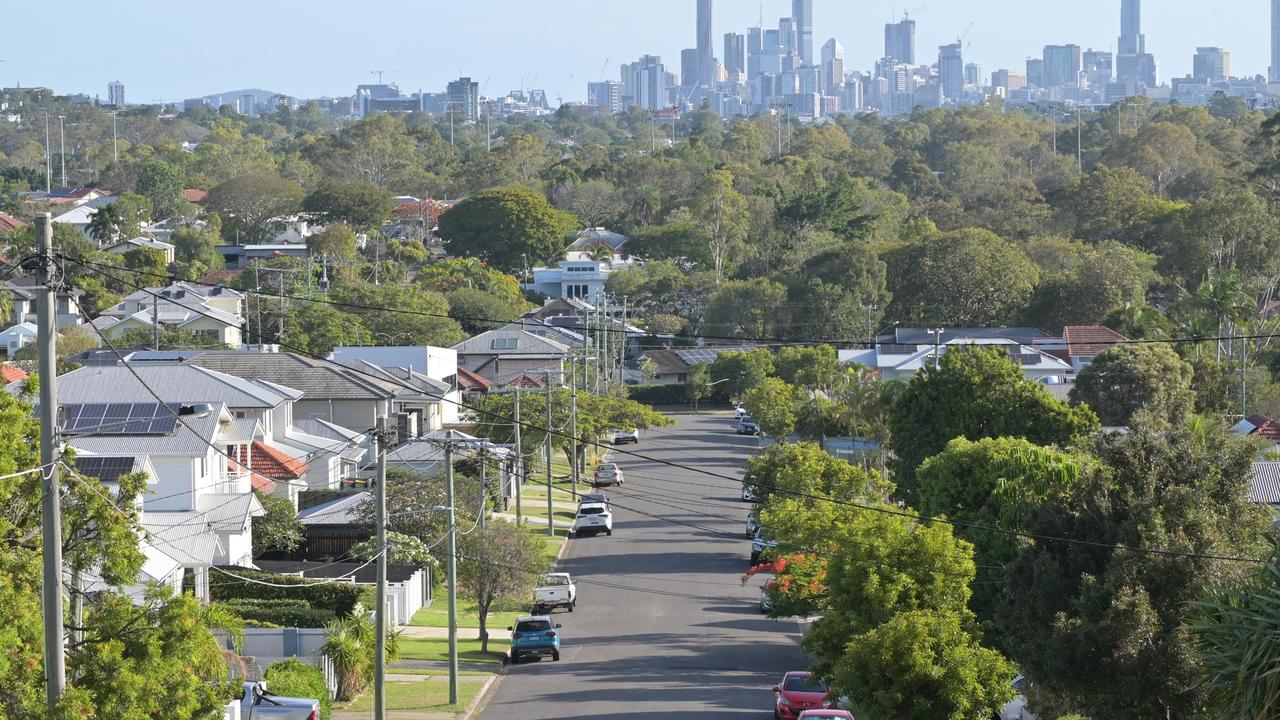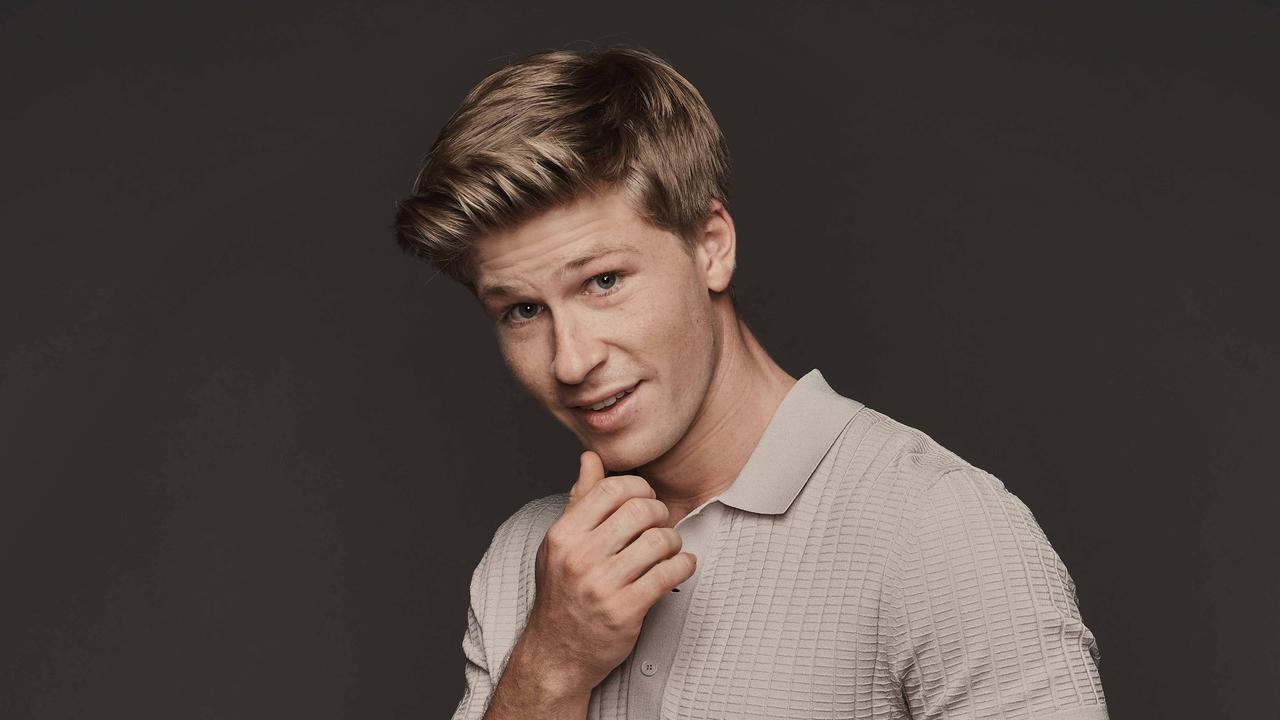‘I feel like I’m about to break’: Men open up about the stigma of anxiety and depression
One man has taken the brave step to open up about his mental health and detail how he got through difficult times.
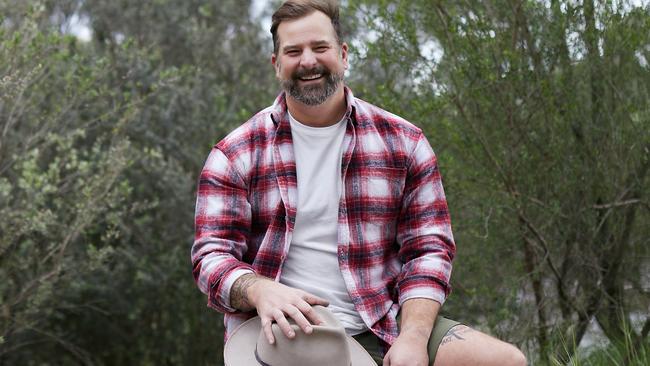
News
Don't miss out on the headlines from News. Followed categories will be added to My News.
Hiking has been one of Kane Ford’s favourite things to do since he was a young boy in scouts. He never could have imagined that one day it would save his life.
It was five years ago that Ford, 46, of Nudgee Beach on Brisbane’s northside, found himself at a crossroads. A successful finance businessman, he had worked 12 to 14-hour days, six days a week for years.
“Sunday was my day to prepare for the week, so I was doing pretty long hours,” he says. “The way I worked back then was I would think of everything that could go wrong and create plans for all of those scenarios … It was that pressure I put on myself to be the best I could be and I used to think of it as a positive thing.”
Before long, his body told him otherwise.
One morning on the way to work, Ford thought he was having a heart attack. In hospital, they did all the checks and ran all the tests before discovering he had in fact experienced a panic attack.
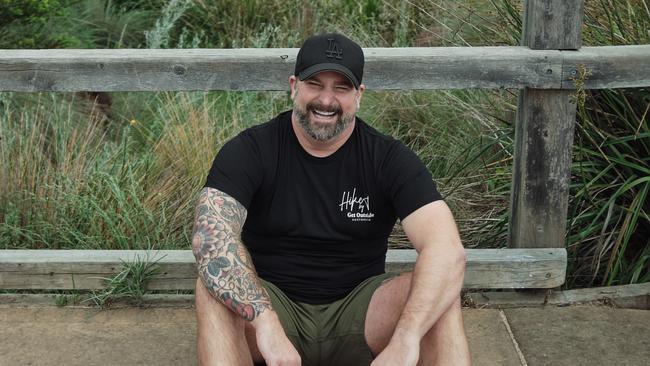
On that same afternoon, he put on his game face and returned to work to facilitate an off-site event for 200 people.
“I just pretended like nothing happened that morning. I just shut it out and I got really good at wearing a mask, particularly in professional settings,” he says.
The long work hours fuelled by his underlying and as-yet undiagnosed anxiety continued. And then it happened again.
“It got to the point where I said to my boss, ‘I can’t do this anymore, I feel like I’m about to break’ and they said, ‘Just take some time out’,” he says. Instead, Ford got in his car and drove to an isolated spot where he’d spent a lot of time hiking. He didn’t tell his partner where he was going. And he didn’t plan on coming back.
“That was my … sort of my moment,” he says.
“I ended up doing a hike around the circuits, about 14km, and I cried for probably 80 per cent of that. Luckily, I talked myself out of it and drove back. It’s one of those things where looking back on it now, I realise a momentary decision can create something that you can never take back. Thankfully, I’m here today and I want to use my experience to help other men realise that sometimes it might not feel like there is a way out, but there always is.”
Being out in the bush has always helped Ford to clear his head.
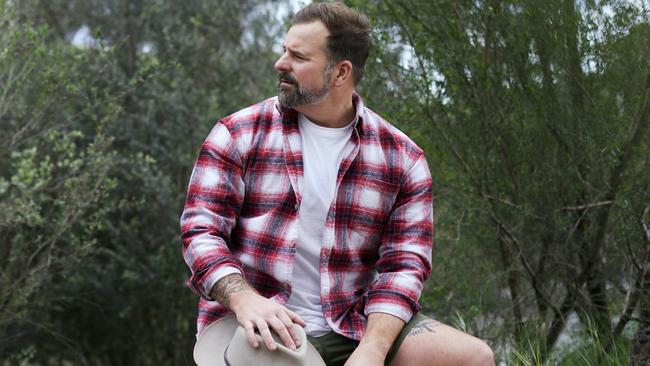
“I’d never made the connection, until that moment, just the healing power of nature … It’s the sort of thing I need to do more often to stay balanced and relieve that pressure valve. It’s how I self-regulate,” he says.
Since then, Ford has set up his own side hustle, Get Outside Australia, running hiking tours near the Glass House Mountains and Mt Barney. He also sees a psychologist to better understand his anxiety, learn how to recognise it and prioritise looking after his mental health.
In Ford’s case, looking back and realising his anxiety began when he was young helped him to come to terms with it.
“I grew up in a regional community and was one of those kids trying to work out who I was,” he says.
“I’m gay and I’ve always had an underlying anxiety that is probably associated with that and around acceptance and, you know, feeling like I was different from a lot of people I was growing up with. It wasn’t until I later moved to Melbourne that I found I wasn’t the only gay person in the world. That was a really nice, comforting thing, but then I went into my career with this underlying anxiety issue,” he says.
Ford has also learnt that disrupted sleep is an warning sign that his anxiety is starting to flare up.
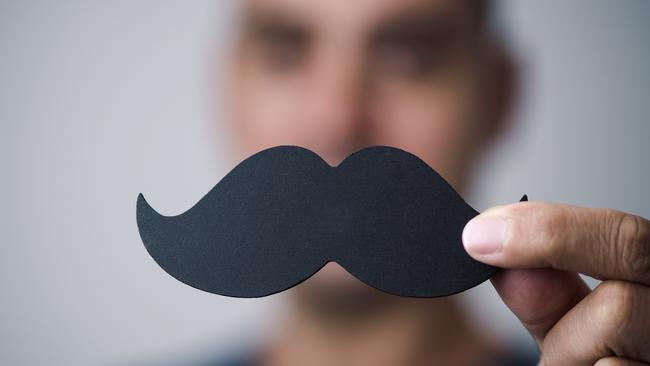
“If I’m having a few nights in a row where I’m waking up at 2am and my mind’s racing, that’s a real trigger sign for me,” he says.
He also gets outside as often as possible and no longer works long hours.
“I’m just as productive and my output is exactly the same as it was when I was doing all of these crazy things to make sure I didn’t make a mistake,” he says.
He has also learnt to open up more to people he feels he can trust.
“All our friends and family want the best for us, but some are maybe not equipped with the right tools or the right things to say at the right time, so it’s working out who in our sphere is able to listen without judgment,’’ he says.
“I still have my really challenging moments. It’s just now I have the right skills and tools to work through it.’’
After 15 years of supporting Movember, an annual event that sees men across the country grow moustaches in November to help raise awareness for men’s health issues including mental health, suicide and prostate and testicular cancer, Ford became an ambassador.
“It’s really given me purpose to turn what was a pretty challenging part of my life into something positive and a way of using my experience to help others,” he says.
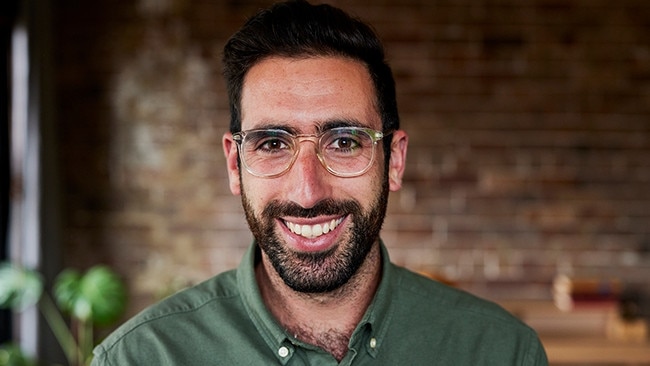
Dr Zac Seidler, 32, a clinical psychologist and Movember’s global director of men’s health research, says the focus this year is on recognising how men’s health impacts us all.
“The aim of the campaign this year is to galvanise the community to get around this idea of helping to ensure that we have men who are healthy, happy, looking after themselves and flourishing in their relationships, which is going to have an incredible ripple effect that is felt throughout communities and families,” he says.
“The history of men’s health really hasn’t been very inclusive. It’s often been driven by men’s rights activist players.
“You have to find inroads for collaboration and collective impact here because our goals around masculinity especially directly impact on women and girls. Healthy masculinity is consistently pursued through self-development and reflection. It’s focused on agency and relationships and understanding oneself. It really leans on fundamental ideas of humanity in many ways – things like belonging, authenticity and generosity.”
Seidler’s family history has had a big influence on his work in men’s health.
It was 11 years ago that his father, Ray Seidler, a highly respected doctor in Sydney and nephew of the famous architect Harry Seidler, died by suicide aged 61 after a secret lifelong battle with depression.
Other men in his family have also experienced mental illness, including his late grandfather Marcel Seidler and his brother, author Jonathan Seidler, who has bipolar disorder. Zac still struggles to comprehend his father’s death.
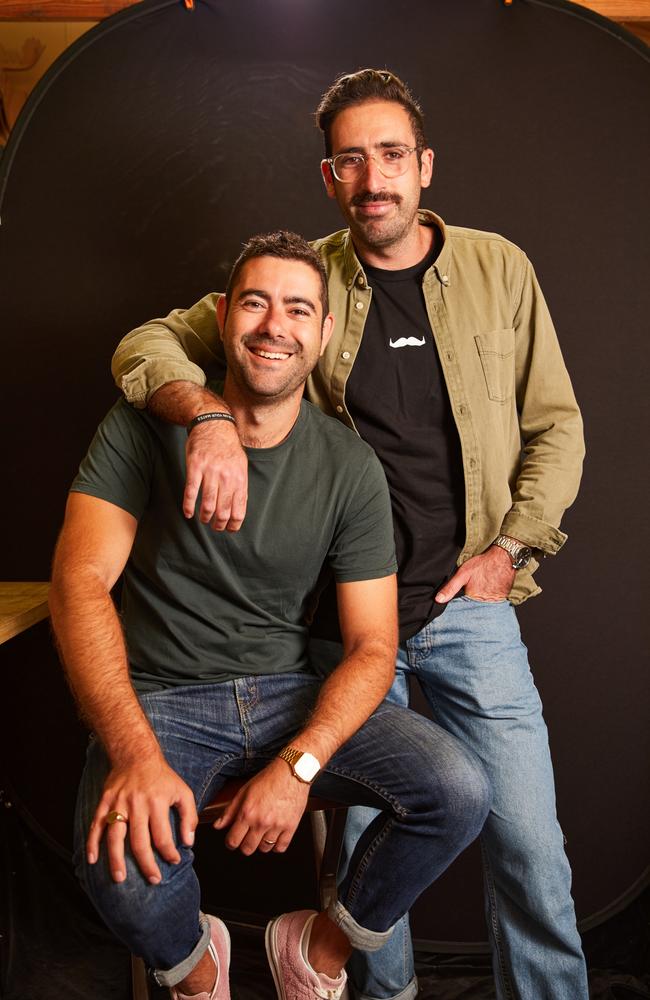
“I think that understanding the way various generations of men have come to terms with, or not come to terms with, their mental health difficulties in my family has meant I’ve had a unique insight into the differences between how men respond to and how they experience this stuff,” he says.
“What we’re trying to do is show that mental health difficulties are the norm, not the exception. It’s part of humanity.”
In Australia, suicide is the leading cause of death among men aged 15 to 44, with men three times more likely to die by suicide than women. Research shows 50 per cent of men who die by suicide have been in contact with mental health services prior to their death.
As part of his Movember work, Seidler has created a training program called Men in Mind designed to upskill therapists and help them respond effectively to men’s mental health difficulties. It has been launched in Tasmania for public mental health practitioners and is expected to roll out to other states.
“For the past decade or so we’ve had a very long campaign across the country and really across the globe telling men to just reach out, talk more, be more vulnerable,” he says.
“But the way in which people respond to men’s distress is that it’s a joke because men have so much power and privilege that they can’t possibly be suffering.
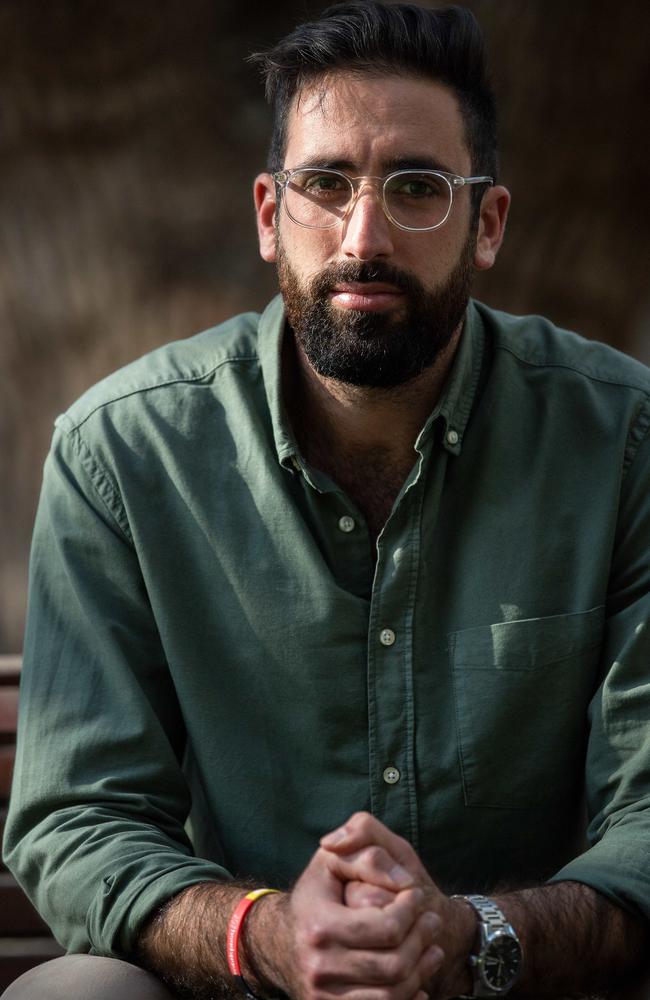
“The training is about how should a counsellor sit across from a man and understand his masculinity, understand gendered biases and attitudes, understand how depression and anxiety look in men and how to respond differently. In many men, anxiety and depression is an external expression, such as risk-taking, irritability, frustration, anger, aggression and substance-taking.”
Seidler says there is one simple thing everyone can do to help the boys, teenagers and men young and old in their lives.
“Share the struggles that you’re having now,” he says.
“That’s all the young men want. They want to feel connected and heard, rather than spoken down to or constantly taught … so many guys and young men need to know they’re not alone.”
Along with good sleep, good nutrition and exercise, Seidler says it’s important for men to nurture social connections.
“Men continuously underestimate the power of friendship. Men lose friends as they age. They don’t prioritise it. This is the very thing that will keep them healthy and happy because it allows them to share what’s happening,” he says. Good or bad.
More Coverage
Originally published as ‘I feel like I’m about to break’: Men open up about the stigma of anxiety and depression



